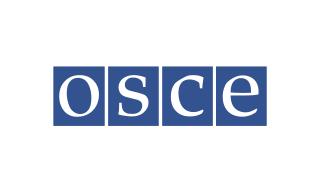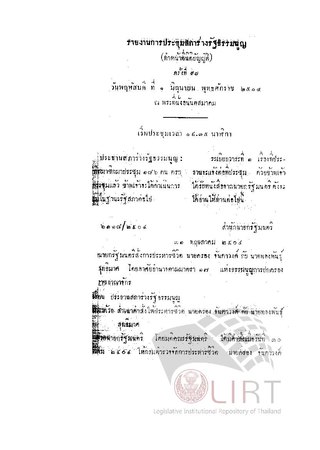
The Organization for Security and Co-operation in Europe (OSCE) is a regional security-oriented intergovernmental organization comprising member states in Europe, North America, and Asia. Its mandate includes issues such as arms control, the promotion of human rights, freedom of the press, and free and fair elections. It employs around 3,460 people, mostly in its field operations but also in its secretariat in Vienna, Austria, and its institutions. It has observer status at the United Nations.

Defamation is a communication that injures a third party's reputation and causes a legally redressable injury. The precise legal definition of defamation varies from country to country. It is not necessarily restricted to making assertions that are falsifiable, and can extend to concepts that are more abstract than reputation – like dignity and honour. In the English-speaking world, the law of defamation traditionally distinguishes between libel and slander. It is treated as a civil wrong, as a criminal offence, or both.

Lèse-majesté or lese-majesty is an offence or defamation against the dignity of a ruling head of state or of the state itself. The English name for this crime is a modernised borrowing from the medieval French, where the phrase meant "a crime against the Crown". In classical Latin, laesa māiestās meant "hurt or violated majesty".
Article 301 is a lèse-majesté law of the Turkish Penal Code making it illegal to insult Turkey, the Turkish nation, Turkish government institutions, or Turkish national heroes such as Mustafa Kemal Atatürk. It took effect on June 1, 2005, and was introduced as part of a package of penal law reform in the process preceding the opening of negotiations for Turkish membership of the European Union (EU), in order to bring Turkey up to EU standards. The original version of the article made it a crime to "insult Turkishness"; on April 30, 2008, the article was amended to change "Turkishness" into "the Turkish nation". Since this article became law, charges have been brought in more than 60 cases, some of which are high-profile.
Human rights in Thailand have long been a contentious issue. The country was among the first to sign the UN's Universal Declaration of Human Rights of 1948 and seemed committed to upholding its stipulations; in practice, however, those in power have often abused the human rights of the Thai nation with impunity. From 1977 to 1988, Amnesty International (AI) reported that there were whitewashed cases of more than one thousand alleged arbitrary detentions, fifty forced disappearances, and at least one hundred instances of torture and extrajudicial killings. In the years since then, AI demonstrated that little had changed, and Thailand's overall human rights record remained problematic. A 2019 HRW report expanded on AI's overview as it focuses specifically on the case of Thailand, as the newly government of Prime Minister Prayut Chan-o-cha assumes power in mid-2019, Thailand's human rights record shows no signs of change.
Most Internet censorship in Thailand prior to the September 2006 military coup d'état was focused on blocking pornographic websites. The following years have seen a constant stream of sometimes violent protests, regional unrest, emergency decrees, a new cybercrimes law, and an updated Internal Security Act. Year by year Internet censorship has grown, with its focus shifting to lèse majesté, national security, and political issues. By 2010, estimates put the number of websites blocked at over 110,000. In December 2011, a dedicated government operation, the Cyber Security Operation Center, was opened. Between its opening and March 2014, the Center told ISPs to block 22,599 URLs.
The laws of Thailand are based on the civil law, but have been influenced by common law.

The monarchy of Thailand is the constitutional form of government of the Thailand. The king of Thailand is the head of state and head of the ruling Royal House of Chakri.
Speech crimes are certain kinds of speech that are criminalized by promulgated laws or rules. Criminal speech is a direct preemptive restriction on freedom of speech, and the broader concept of freedom of expression.

In Thailand, lèse-majesté is a crime according to Section 112 of the Thai Criminal Code. It is illegal to defame, insult, or threaten the monarch of Thailand. Modern Thai lèse-majesté law has been on the statute books since 1908. Thailand is the only constitutional monarchy to have strengthened its lèse-majesté law since World War II. With penalties ranging from three to fifteen years imprisonment for each count, it has been described as the "world's harshest lèse majesté law" and "possibly the strictest criminal-defamation law anywhere". Its enforcement has been described as being "in the interest of the palace".

Ampon Tangnoppakul, commonly known in Thai as Ah Kong or in English as Uncle SMS, was a Thai national accused of sending four Short Message Service (SMS) messages from his cell phones to Somkiat Khrongwatthanasuk, secretary of then Prime Minister Abhisit Vejjajiva that were deemed offensive to the King and Queen of Thailand, as proscribed by section 112 of the Criminal Code of Thailand and the law on computer-related offences. Having been found guilty of four charges in November 2011, he was sentenced by the Criminal Court to four consecutive five-year terms, for a total of twenty years in prison. His death in prison during the first year of his sentence attracted national and international criticism, prompting a national discussion of Thailand's lèse majesté law.
Lèse majesté in Norway was judicially based and defined in Norway's 1902 Penal Code, which provided fines or prison for this crime. Often related to political conflicts, accusations of lèse majesté were frequent in the 17th, 18th, and 19th centuries, and many cases resulted in execution. Virtually no legal actions have been taken after 1905. The last to be charged for lèse majesté was a man who attacked Queen Elizabeth II of the United Kingdom with a tomato during her state visit in 1981. As of 2015, lèse majesté is no longer a criminal offence in Norway.

Somyot Prueksakasemsuk is a Thai activist and magazine editor who in 2013 was sentenced to eleven years' imprisonment for lese majeste against King Bhumibol Adulyadej. His sentence drew protest from the European Union and from numerous human rights groups, including Amnesty International, which designated him a prisoner of conscience. He was an editor of the “Voice of Thaksin” magazine and a prominent labour rights activist affiliated with the Democratic Alliance of Trade Unions who protested for Thai labour law reform.
The year 1957 was the 176th year of the Rattanakosin Kingdom of Thailand. It was the 12th in the reign of King Bhumibol Adulyadej, and is reckoned as year 2500 in the Buddhist Era.
Chanoknan Ruamsap is a Thai pro-democracy activist. She is taking political refuge in the Republic of Korea after the Thailand government issued a notice of prosecution against her on the charge of insulting the monarchy by sharing a BBC article about the country's new king.

Insult is the infringement of another human's honor by whatsoever means of expression, in particular an offensive statement or gesture communicated, and is a crime in some countries. In a few countries seen as the same, in most the distinction between insult and defamation is that, from a focusing point of view, the former ascribes a value whereas the latter attributes or imputes a fact.

Arnon Nampa is a Thai human rights lawyer and activist. He has openly criticized the monarchy of Thailand, which is controversial in the country. He was initially regarded as a prominent human rights defender during his tenure as a human rights lawyer and later accumulated multiple criminal charges due to his active involvement in pro-democracy activism. He is one of the leading figures of the 2020–2021 Thai protests, co-leading reforms to the monarchy reform movement by non-elite people for first time in Thai history.

Article 299 of the Turkish Penal Code is a lèse-majesté law deems it illegal to "Insult the President of Turkey". A person who is sentenced for a violation of this article can be sentenced to a prison term between one and four years and if the violation was made in public the verdict can be elevated by a sixth. Prosecutions often target critics of the government, independent journalists, and political cartoonists. Between 2014 and 2019, 128,872 investigations were launched for this offense and prosecutors opened 27,717 criminal cases. Turkey's article 299 and article 125, which allows one party to sue for insult despite lack of sufficient evidence, are arguably used as strategic lawsuit against public participation, known internationally as SLAPP.

The Law on Crimes Committed Against Atatürk, or the Law No. 5816, also colloquially known as the law on the protection of Atatürk, is a lèse-majesté law of the Republic of Turkey adopted on July 25, 1951. Its subject is the crimes to be committed, or have been committed, against the founder and first President of the country, Mustafa Kemal Atatürk.










